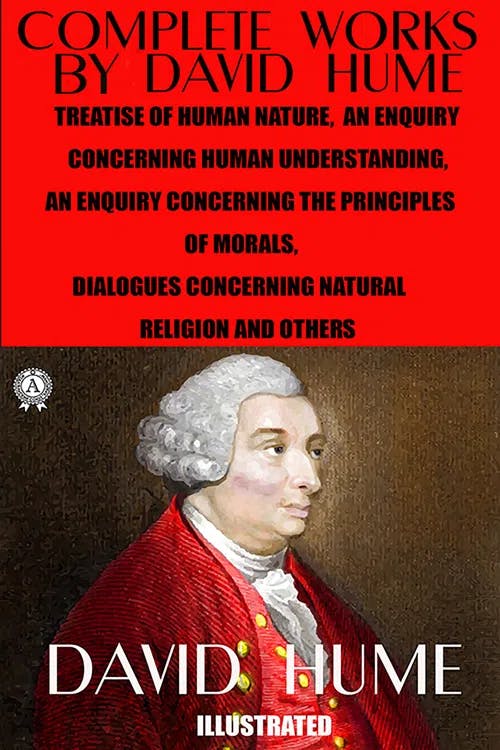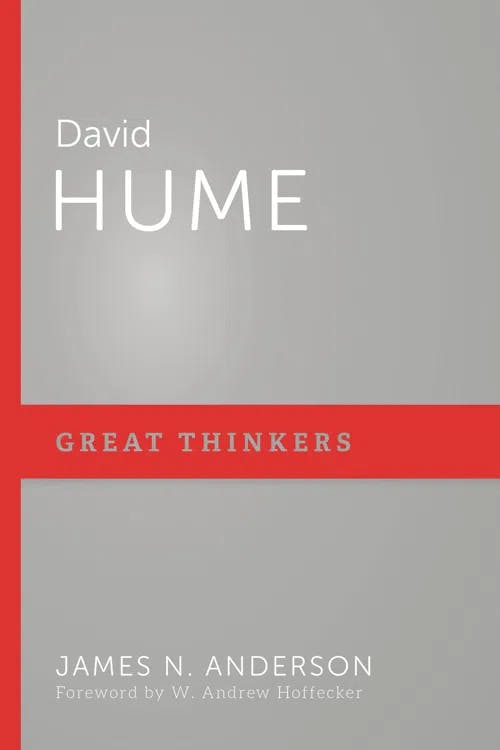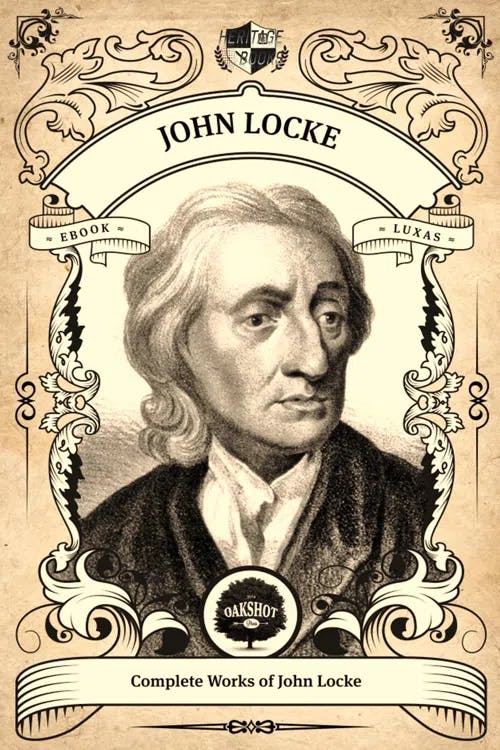What is Empiricism?
PhD, Media Arts (Royal Holloway, University of London)
Date Published: 02.08.2023,
Last Updated: 16.07.2024
Share this article
Defining empiricism
The word empiricism comes from the Greek word “empeiria”, meaning “experience”. As a philosophical concept, empiricism refers to a certain way of acquiring knowledge. Its simple premise is that the only things we can claim to know are what we garner from our senses; we can only know that which we have direct experience of. This proposition is the basis for numerous diverging philosophical movements, each with their own triumphs and pitfalls.
Empiricism is united against the premise of rationalism. Rationalism is a school of thought that proposes that the mind can generate knowledge outside of experience. Both empiricism and rationalism seek to answer questions about what exists, but they each have different requirements for making these knowledge claims. This is what is known in philosophy as the a priori / a posteriori distinction. These terms have their basis in Aristotle’s The Organon (40 BCE) and have become a useful, but technical, shorthand for two types of knowledge acquisition. A priori refers to a proposition that can be known independent of experience. To use the famous Kantian example, we might claim to know that “all bachelors are unmarried men.” We do not need to have experience of “all bachelors” to know that they are unmarried because the very concept of a bachelor predicates this marital status. Thus, we are making an a priori knowledge claim; a knowledge claim acquired from the logical and deductive power of the mind rather than direct experience of the world. A posteriori refers to knowledge claims garnered only from experience. The claim that the sun is shining, or that Mount Everest is the highest mountain, must be verified by our experience of the world; you must observe the sun shining — Mount Everest must be measured — in order for those knowledge claims to be justified. Empiricism contends that the only knowledge we have is a priori; originating in and verified by our experience. This opposition to rationalism is a key feature of empiricism. As R. Meyers asserts in Understanding Empiricism,
Empiricism and rationalism are contradictory. One asserts that there is some a priori knowledge of reality and the other denies it. This means that one cannot be both an empiricist and rationalist at the same time. (2014)
Robert G. Meyers
Empiricism and rationalism are contradictory. One asserts that there is some a priori knowledge of reality and the other denies it. This means that one cannot be both an empiricist and rationalist at the same time. (2014)
It is important here to consider what we mean by experience. Some may claim to have an experience of God, for example. For thinkers like René Descartes, proof of God exists in our concept of him. The idea of a perfect creator predicates the existence of God. But this was not compelling to the empiricists. They argued that God is not found in the outside world and therefore his existence cannot be verified by our senses. This was the empiricist criteria for experience. Empiricist philosopher John Locke responded to Descartes’s rationalist methodology, claiming that the only ways to justify the existence of something is by examining the world around us — “external perception” — and examining the way our mind works in response — “internal perception” (Meyers, 2014). This is what constitutes experience for Locke. As Meyers expands, however,
Locke’s own argument for God meets this condition. He holds that we are conscious that we exist and are thinking beings and, since matter cannot explain thought, concludes that a thinking being created the material world. This is an empiricist argument, since it rests on premises that are (i) about real existents, as opposed to concepts, and (ii) are certified by experience. (2014)
As we can see here, it is not that Locke did not believe in God, it’s that he could not accept Descartes’s justification of his existence. We see here how two opposing approaches can lead to the same basic knowledge claim. With this in mind, empiricism is a methodology rather than a doctrine; it presents a way to find things out rather than tells us directly what exists and what does not. Empiricism has a long history, with countless iterations and developments, some of which we will explore in the following article.
Early empiricism
The basic empiricist methodology has a presence in ancient philosophies from around the world. Dating as far back as 9th century BC, many ancient Indian philosophies, for example, cite “perception” and “inference” as the “accepted proof” of “formal or generic existence” (Hindu Philosophy, Davies, 2013). Schools of thought like Sānkhya, Vaisheshika, and Charvaka gave credence to that which appealed to our external perception, while considering that faculties like rationality, logic, and inference provide a different, less certain understanding of the world. Such a line of thinking matches the methodology of empiricism; sharing the premise that sensory experience is the only means of knowing — that true knowledge is gained a posteriori.
Aristotle (384–322 BCE) is the ancient Greek philosopher perhaps most commonly associated with early empiricism. Aristotle famously looked to nature — to natural phenomena — to understand the relationship between observation or perception, and knowledge claims. The prevailing philosophies at the time were Platonism and materialism. Plato understood the world as made up of imitations of divine forms, while materialism suggested everything in existence to be made up of matter and function mechanically. The former of these was too dogmatic for Aristotle, and the latter too reductive. Platonism was an idealist philosophy, meaning it developed concepts first that the world then conformed to. Empiricism, on the other hand, looked to the world first, then formulated conceptual understanding. This process is at the heart of the scientific method, with Aristotle often heralded as the first biologist of the Western world. Aristotle relied on the correspondence between our experience of the world, and our idea of it; constant corroboration by means of experience would yield knowledge. In Aristotle’s Empiricism, Jean De Groot outlines the difference between experience and experiment (both associated with the scientific method), noting,
The absence of experimentation has been cited as a characteristic of early science. Experiment, the hallmark of modern Western science, is usually described as the contrivance, for the purpose of discovering underlying principles, of empirical states of affairs not encountered in the natural course of events. Experiment is defined over against experience, a term of art among historians of science that refers to a collection of empirical encounters with the natural world. Experience may mean more or less detailed observation of physical phenomena, anatomical inspection, astronomical data collecting, or any kind of induction from one or many cases. (2014)
Jean De Groot
The absence of experimentation has been cited as a characteristic of early science. Experiment, the hallmark of modern Western science, is usually described as the contrivance, for the purpose of discovering underlying principles, of empirical states of affairs not encountered in the natural course of events. Experiment is defined over against experience, a term of art among historians of science that refers to a collection of empirical encounters with the natural world. Experience may mean more or less detailed observation of physical phenomena, anatomical inspection, astronomical data collecting, or any kind of induction from one or many cases. (2014)
This outlines the way in which experience preceded the intricacies of the modern scientific method. The observation of the nature of things, their causes and effects, and the necessity of experience in this process, is the bedrock of modern science. This empiricist position on knowledge acquisition is indebted to the work of Aristotle. (For more on Aristotle, you can explore our guide on his concept of the four causes.)
With these examples of ancient empiricism in mind, we can see how fundamental experience is to much of today’s world view. It has proposed an answer to two of the great epistemological questions: “what is knowledge?” and “how do we come to know things?” Empiricism outlines a particular condition for knowledge — that knowledge is garnered from sense experience — one that appears in some of the earliest known philosophical thought and continues to hold credence today.
British empiricism
Significant developments in our contemporary understanding of empiricism were made by seventeenth and eighteenth-century British Enlightenment thinkers. Crucially, philosophers such as John Locke (1632–1704) and David Hume (1711–1776) provided examples of the essential components of empiricist theory. These thinkers are among the first British empiricists, carving out a unique intellectual history in Britain.
John Locke was a significant proponent of the theory that the mind is a black slate, a tabula rasa. With its roots in Aristotelian empiricism, this theory proposed that the mind possesses no innate ideas or structures. Locke uses the example of a newborn baby, claiming that “infants” are all born “weak and helpless, without knowledge or understanding” (Complete Works of John Locke, 1689, [2019]). He theorizes that, because that baby has no experience of the world, it has no content in its mind; it is a blank slate. As the baby gains experience and as its senses develop, the world begins to imprint on the baby’s mind. This is how, according to Locke and empiricism more broadly, we come to have knowledge of the world. The concept of the mind as a tabula rasa again refutes the rationalist proposition that we can know things a priori; independent of experience. Where rationalism believes that the mind has the capacity to gain knowledge through logic and deduction, presupposing innate mental structures and functions, empiricism considers the mind to be a receptacle for our experiences of the world.
David Hume built on this empiricist theory of mind. He considered the capacity of the mind to generalize and conceptualize, while still believing it to be a blank slate. If we see one swan, and another swan, and another, we build a mental category of “swans.” We have no concept of this mental category at birth, we develop it through experience. Furthermore, if we have seen a multitude of swans in our lives, and all of them have been white, we are likely to conclude that all swans are white. This is called inductive reasoning and it is a habit of the mind, one that assumes the future will conform to our past experiences. Hume applies this mental tendency to cause and effect, asserting,
Our idea, therefore, of necessity and causation arises entirely from the uniformity observable in the operations of nature, where similar objects are constantly conjoined together, and the mind is determined by custom to infer the one from the appearance of the other. (1739–40, [2021])
David Hume
Our idea, therefore, of necessity and causation arises entirely from the uniformity observable in the operations of nature, where similar objects are constantly conjoined together, and the mind is determined by custom to infer the one from the appearance of the other. (1739–40, [2021])
It was Hume’s position that inductive reasoning, although a mental tendency, cannot be justified because it presupposes a priori understanding. The past cannot provide us with sensory experience of the future, therefore any inferences we make about the future are made outside of the empiricist method. In David Hume, James N. Anderson speaks to the importance of Hume, explaining,
Hume argued that reason is unable to underwrite our ideas about an external world and to justify our inductive inferences about general laws of nature that enable us to predict future events. No philosopher who is committed to Hume’s naturalistic approach has been able to solve the problems exposed by Hume. (2019)
James N. Anderson
Hume argued that reason is unable to underwrite our ideas about an external world and to justify our inductive inferences about general laws of nature that enable us to predict future events. No philosopher who is committed to Hume’s naturalistic approach has been able to solve the problems exposed by Hume. (2019)
The contributions made by Locke and Hume are examples of the way that empiricism was expanded on in more modern thought, building on the idea that knowledge flows to us from the external world, rather than from our minds to the external world.
Triumphs and pitfalls of empiricism
Empiricism is among the most crucial and influential epistemological positions, providing a compelling answer to the question of where knowledge comes from. It stripped the mind back of inferences and deductions, studying only the knowledge we gain through observation of the world. By distilling knowledge down to what we experience, empiricism paved the way for the scientific method that still relies on the heavy burden of proof that empiricism outlined. This has made for a rigorous means of investigating the world. However, empiricism, like any other philosophical treatise, is far from foolproof.
René Descartes (1596–1650) famously questioned the reliability of our sensory experience. He was troubled by the potential for our senses to be tricked or manipulated. He asked how do we know we are not being deceived by an omnipotent evil demon? How do we know we aren’t merely dreaming of these experiences? Or as a later thought experiment would ask, how can we be sure we are not a brain in a vat, hooked up to an elaborate machine that simulates a corporeal experience? All these possibilities would make our experiences feel real but would not correspond to the objective world. Descartes concluded that he must not trust his senses and thus must suspend all knowledge his senses seemingly provide him. Cartesian skepticism, as this position is known, would seem to question the very foundations of empiricism.
Locke had a response to this, of course. He agreed with Descartes that there were aspects of sensory experience that could not be trusted. So, he split experience of the outside world into two categories: primary and secondary. Locke proposed,
The ideas of primary qualities of bodies are resemblances of them and their patterns do really exist in the bodies themselves; but the ideas produced in us by these secondary qualities have no resemblance of them at all. There is nothing like our ideas existing in the bodies themselves. (1690, [2019)
John Locke
The ideas of primary qualities of bodies are resemblances of them and their patterns do really exist in the bodies themselves; but the ideas produced in us by these secondary qualities have no resemblance of them at all. There is nothing like our ideas existing in the bodies themselves. (1690, [2019)
Primary qualities belong to the object; they are material facts of the world. For example, a particular tree has indisputable qualities, like its height, its weight, its density, and if you were to disagree with those qualities, you would be wrong. These are primary qualities. They belong to the object itself and not the mind of the perceiver. Secondary qualities are things like color, taste, and sound. A debate could easily take place on the color of the tree, or the sound its leaves make. That’s because, as Yasser Jarkas explains,
Ideas of secondary qualities do not resemble any property in the object; they are instead a product of the power that the object has to cause certain kinds of ideas in the mind of the perceiver. (“Introduction,” Complete Works of John Locke, 2019)
This addressed another major question that empiricism provoked: how can you be sure that your experience of a thing perfectly matches the next person’s experience? There is no way to verify that my understanding of “green,” for example, is the same as yours.
In response to Locke’s primary and secondary qualities, George Berkeley (1685–1753) questioned the objectivity that empiricism still relied on. Perception could not be compartmentalized into primary and secondary qualities because we cannot actually experience these qualities independently. The tree, stripped of its secondary qualities, cannot exist. If secondary qualities can only be known subjectively, and secondary qualities cannot be separated from primary qualities, then, Berkeley concluded, all perception takes place in the mind. As a result, experience cannot confirm the existence of a material world. Berkeley wrote,
By our senses we cannot perceive more than ideas or phenomena, aggregated as individual things that are presented to us: we cannot perceive substances that make no appearance in sense. (1710, [2012])
George Berkeley
By our senses we cannot perceive more than ideas or phenomena, aggregated as individual things that are presented to us: we cannot perceive substances that make no appearance in sense. (1710, [2012])
This was another pitfall of empiricism; we are unable to step outside of our own experience, to see the world independently of our mind or senses. So, Berkeley believed, in order for something to exist it has to be perceived; things only exist “in the mind of the perceiver” (Jarkas, 2019). Despite this strictly immaterialist school of thought, Berkeley was considered among the most famous British empiricists because his position still rests on the power of observation. Knowledge still comes from experience and our perception of the world.
These are just a few examples of the discourse that constitutes empiricism’s long and intricate history. As De Groot summarizes,
Empiricism, the conviction that in one way or another sense experience or being acted upon by the world is the primary source of human knowledge, is a notion so broad as to be in need of continual refinement. (2014)
What unites this ever-evolving philosophy is the conviction that ideas alone cannot exist in a void — they must come from somewhere. Empiricism emerged as an answer to the infamous skepticism that guides philosophical enquiry — one that prioritizes our experience and perception of the world around us. The existence of things around us is the ontological starting point for empiricism; only then can we make knowledge claims and begin to examine the self.
Further reading on Perlego
Introducing Empiricism by Dave Robinson, Bill Mayblin
Objectivity, Empiricism and Truth by R. N. Newell
Taste and Experience in Eighteenth-Century British Aesthetics by Dabney Townsend
Consciousness in Indian Philosophy by Sthaneshwar Timalsina
An Introduction to Indian Philosophy by Christopher Bartley
From Empiricism to Expressivism by Robert B. Brandom
Empiricism FAQs
What is empiricism in simple terms?
What is empiricism in simple terms?
Who are the major empiricist thinkers?
Who are the major empiricist thinkers?
What is the difference between empiricism and rationalism?
What is the difference between empiricism and rationalism?
Bibliography
Anderson, J. (2019) David Hume. P Publishing. Available at: https://www.perlego.com/book/2508624/david-hume-pdf
Berkeley, G. (2012) The Works of George Berkeley. Vol. 1 of 4. Available at: https://www.perlego.com/book/1818510/the-works-of-george-berkeley-vol-1-of-4-philosophical-works-170521-pdf
Davies, J. (2013) Hindu Philosophy. Taylor and Francis. Available at: https://www.perlego.com/book/1676621/hindu-philosophy-the-sankhya-karika-of-iswara-krishna-pdf
De Groot, J. (2014) Aristotle’s Empiricism. Parmenides Publishing. Available at: https://www.perlego.com/book/1296538/aristotles-empiricism-pdf
Hume, D. (2021) Complete Works by David Hume. Strelbytskyy Multimedia Publishing. Available at: https://www.perlego.com/book/2698403/complete-works-by-david-hume-illustrated-treatise-of-human-nature-an-enquiry-concerning-human-understanding-an-enquiry-concerning-the-principles-of-morals-dialogues-concerning-natural-religion-and-others-pdf
Locke, J. (2019) Complete Works of John Locke. Heritage Books. Available at: https://www.perlego.com/book/2897622/complete-works-of-john-locke-pdf
Meyers, R. (2014) Understanding Empiricism. Taylor and Francis. Available at: https://www.perlego.com/book/1562206/understanding-empiricism-pdf
Yasser, J. (2019) “Introduction” in Locke, J. Complete Works of John Locke. Heritage Books. Available at: https://www.perlego.com/book/2897622/complete-works-of-john-locke-pdf
PhD, Media Arts (Royal Holloway, University of London)
Aoiffe Walsh has a PhD in Media Arts from Royal Holloway, University of London. With a background in film studies and philosophy, her current research explores British literary modernism, with a particular focus on surrealism between the wars. She has lectured and published pieces on documentary and film theory, film history, genre studies and the avant-garde.






